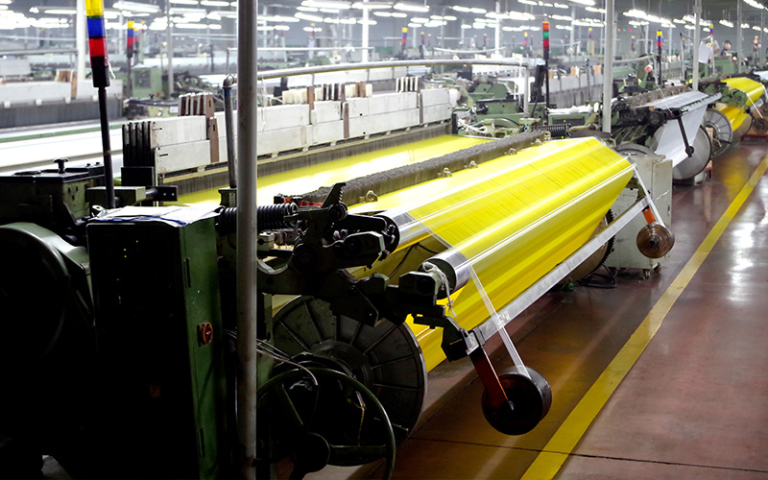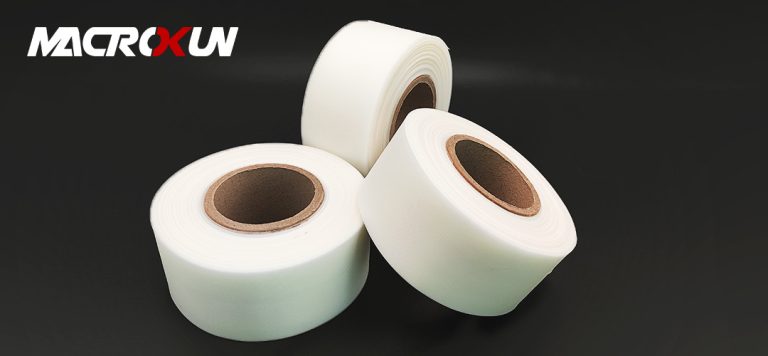Table of Contents
Fishing Industry Applications
Nylon netting is a versatile material that finds a wide range of industrial applications, including in the fishing industry. Its durability, strength, and flexibility make it an ideal choice for various fishing-related tasks. From catching fish to protecting fishing gear, nylon netting plays a crucial role in the smooth operation of fishing activities.
One of the primary uses of nylon netting in the fishing industry is in the construction of fishing nets. Nylon nets are lightweight yet strong, making them perfect for catching fish of all sizes. The flexibility of nylon netting allows fishermen to easily maneuver the nets in the water, increasing their chances of a successful catch. Additionally, nylon netting is resistant to abrasion and UV rays, ensuring that the nets remain in good condition even after prolonged use in harsh marine environments.
Another important application of nylon netting in the fishing industry is in the creation of fish cages. Fish cages are used to contain and transport live fish, whether for aquaculture purposes or for sale in the market. Nylon netting is an ideal material for fish cages due to its strength and resistance to corrosion. The flexibility of nylon netting also allows fish to move freely within the cages, promoting their health and well-being.
In addition to fishing nets and fish cages, nylon netting is also used in the construction of seine nets. Seine nets are large nets that are used to encircle schools of fish, allowing fishermen to catch a large quantity of fish at once. Nylon netting’s strength and durability make it well-suited for this task, as seine nets need to withstand the weight and pressure of the fish they capture. The flexibility of nylon netting also allows seine nets to be easily deployed and retrieved, making them a popular choice among fishermen.
Nylon netting is also used in the fishing industry to protect fishing gear from damage. Trawl nets, which are used to catch fish by dragging them along the seabed, are often reinforced with nylon netting to prevent tears and abrasions. By adding a layer of nylon netting to trawl nets, fishermen can extend the lifespan of their gear and reduce the need for frequent repairs or replacements.
Overall, the versatility of nylon netting makes it an indispensable material in the fishing industry. Its strength, durability, and flexibility make it well-suited for a wide range of fishing-related tasks, from catching fish to protecting fishing gear. Whether used in fishing nets, fish cages, seine nets, or trawl nets, nylon netting plays a crucial role in ensuring the success and efficiency of fishing operations. Its ability to withstand the rigors of marine environments makes it a top choice for fishermen around the world.
Agricultural Sector Uses
Nylon netting is a versatile material that finds a wide range of applications across various industries. In the agricultural sector, nylon netting is particularly useful for a number of purposes. One of the primary uses of nylon netting in agriculture is for crop protection. Farmers often use nylon netting to create protective barriers around their crops to prevent damage from pests and birds. The fine mesh of nylon netting is effective at keeping out unwanted intruders while still allowing sunlight and water to reach the plants.
Another common use of nylon netting in agriculture is for supporting climbing plants. Nylon netting provides a sturdy structure for plants like tomatoes, cucumbers, and beans to climb on as they grow. This helps to keep the plants off the ground, reducing the risk of disease and making it easier for farmers to harvest the crops. Nylon netting is also used in greenhouse operations to create partitions and dividers, allowing farmers to separate different crops or control the flow of air and sunlight within the greenhouse.
In addition to crop protection and support, nylon netting is also used in aquaculture. Fish farmers often use nylon netting to create cages and enclosures for their fish. The strong and durable nature of nylon netting makes it an ideal material for containing fish while still allowing water to flow freely through the mesh. Nylon netting is also used in aquaculture for creating filters and screens to remove debris and waste from the water, helping to maintain a clean and healthy environment for the fish.
Nylon netting is also used in the construction of shade structures in agriculture. Farmers often use nylon netting to create shade cloths that can be placed over crops to protect them from excessive sunlight and heat. Shade cloths made from nylon netting are lightweight and easy to install, making them a convenient solution for providing shade to crops during hot weather. Nylon netting can also be used to create windbreaks and barriers to protect crops from strong winds, helping to prevent damage and loss of yield.
Overall, the versatility of nylon netting makes it an invaluable material in the agricultural sector. From crop protection and support to aquaculture and shade structures, nylon netting offers a wide range of applications that help farmers improve the health and yield of their crops. Its strength, durability, and flexibility make it a reliable choice for a variety of agricultural uses. Whether used in the field, greenhouse, or aquaculture operation, nylon netting continues to prove its worth as a versatile and essential material for modern agriculture.
Construction and Safety Netting
Nylon netting is a versatile material that finds a wide range of industrial applications, particularly in the construction and safety sectors. Its durability, strength, and flexibility make it an ideal choice for various uses in these industries. In this article, we will explore some of the top industrial uses of nylon netting and what makes it such a versatile material.
One of the most common uses of nylon netting in the construction industry is as a safety net. Construction sites are inherently dangerous places, with workers often working at heights and exposed to various hazards. Nylon netting provides a protective barrier that can prevent falls and injuries, making it an essential safety measure on construction sites. Its strength and durability ensure that it can withstand the weight of a falling worker and provide a reliable safety net.

In addition to safety netting, nylon netting is also used in construction for debris containment. Construction sites generate a significant amount of debris and waste, which can pose a hazard to workers and the surrounding environment. Nylon netting can be used to contain and secure debris, preventing it from falling or blowing away. This helps to maintain a clean and safe work environment and reduces the risk of accidents and injuries.
Another industrial use of nylon netting in construction is as scaffolding netting. Scaffolding is a temporary structure used to support workers and materials during construction or maintenance work. Nylon netting can be installed around scaffolding to provide additional safety and protection. It can prevent tools, materials, or debris from falling off the scaffolding and injuring workers or bystanders below. Additionally, scaffolding netting can help to shield workers from the elements, such as wind, rain, or sun exposure.
Nylon netting is also used in the construction industry for erosion control. Construction sites can disrupt the natural landscape and lead to soil erosion, which can have detrimental effects on the environment. Nylon netting can be used to stabilize soil and prevent erosion by creating a barrier that holds the soil in place. This helps to protect the surrounding area from sediment runoff and maintains the integrity of the ecosystem.
In addition to its uses in construction, nylon netting is also utilized in the safety industry for fall protection systems. Workers in various industries, such as construction, manufacturing, and maintenance, often work at heights and are at risk of falls. Nylon netting can be used to create fall protection systems, such as safety nets or harnesses, that can prevent or mitigate the impact of a fall. Its strength and flexibility make it an effective safety measure for workers at height.
Overall, nylon netting is a versatile material that plays a crucial role in the construction and safety industries. Its durability, strength, and flexibility make it an ideal choice for various applications, such as safety netting, debris containment, scaffolding netting, erosion control, and fall protection systems. By understanding the top industrial uses of nylon netting and what makes it so versatile, we can appreciate its importance in ensuring the safety and efficiency of industrial operations.
Automotive Industry Utilization
Nylon netting is a versatile material that finds a wide range of applications across various industries. In the automotive industry, nylon netting is used for a multitude of purposes due to its durability, strength, and flexibility. From protecting delicate components to enhancing safety features, nylon netting plays a crucial role in ensuring the smooth functioning of vehicles.
One of the primary uses of nylon netting in the automotive industry is for air filtration systems. Nylon netting is an ideal material for air filters as it allows for efficient airflow while trapping dust, dirt, and other particles. This helps to maintain the cleanliness of the engine and ensures optimal performance. Additionally, nylon netting is resistant to chemicals and can withstand high temperatures, making it a reliable choice for air filtration systems in vehicles.
Another important application of nylon netting in the automotive industry is for seat covers. Nylon netting is often used as a backing material for seat covers as it provides support and structure. The flexibility of nylon netting allows for a comfortable seating experience while also ensuring durability and longevity. Additionally, nylon netting is easy to clean and maintain, making it a practical choice for automotive upholstery.
In addition to air filtration systems and seat covers, nylon netting is also used in the automotive industry for cargo nets. Cargo nets are essential for securing items in the trunk or cargo area of a vehicle, preventing them from shifting or falling during transportation. Nylon netting is an ideal material for cargo nets as it is strong, lightweight, and resistant to wear and tear. This ensures that the cargo net can withstand heavy loads and provide reliable protection for the items being transported.
Furthermore, nylon netting is utilized in the automotive industry for safety purposes. Nylon netting is often used in the construction of safety barriers and barriers for road construction sites. The strength and durability of nylon netting make it an effective barrier against debris and other hazards, protecting both workers and motorists. Additionally, nylon netting can be easily installed and removed, making it a convenient choice for temporary safety barriers.
Overall, the versatility of nylon netting makes it a valuable material in the automotive industry. Its strength, durability, and flexibility make it an ideal choice for a wide range of applications, from air filtration systems to seat covers to safety barriers. Whether it’s protecting delicate components or enhancing safety features, nylon netting plays a crucial role in ensuring the efficiency and functionality of vehicles. Its reliability and practicality make it a preferred material for automotive manufacturers and suppliers looking to enhance the quality and performance of their products.
Sports and Recreation Equipment
Nylon netting is a versatile material that finds a wide range of industrial applications, including sports and recreation equipment. Its durability, flexibility, and strength make it an ideal choice for various uses in this sector. From sports nets to safety barriers, nylon netting is a popular choice for manufacturers and consumers alike.
One of the most common uses of nylon netting in sports and recreation equipment is in the construction of sports nets. Whether it’s for soccer, tennis, volleyball, or golf, nylon netting is used to create durable and reliable nets that can withstand the rigors of regular use. Its high tensile strength and resistance to abrasion make it an excellent choice for sports nets that need to endure heavy impacts and constant tension.

In addition to sports nets, nylon netting is also used in the construction of safety barriers for various recreational activities. From rock climbing walls to trampoline enclosures, nylon netting provides a strong and flexible barrier that can protect users from falls and other accidents. Its ability to absorb impact energy and distribute it evenly makes it an essential component of safety equipment in many recreational settings.
Another popular use of nylon netting in sports and recreation equipment is in the creation of batting cages. Nylon netting is used to create the walls and ceilings of batting cages, providing a safe and secure environment for athletes to practice their hitting skills. Its ability to withstand repeated impacts from baseballs and softballs makes it an ideal choice for this application, ensuring that the cage remains intact and functional for years to come.

Nylon netting is also used in the construction of golf practice nets, providing golfers with a convenient way to practice their swings at home or on the go. These nets are designed to catch golf balls and prevent them from flying off into the distance, allowing golfers to focus on improving their technique without worrying about damaging property or injuring bystanders. The durability and strength of nylon netting make it an excellent choice for this application, ensuring that the net can withstand the force of a golf ball traveling at high speeds.
In conclusion, nylon netting is a versatile material that is widely used in sports and recreation equipment for its durability, flexibility, and strength. From sports nets to safety barriers, batting cages to golf practice nets, nylon netting plays a crucial role in ensuring the safety and enjoyment of athletes and recreational enthusiasts alike. Its ability to withstand heavy impacts, resist abrasion, and absorb energy makes it an ideal choice for a wide range of applications in this sector. Whether you’re a professional athlete or a weekend warrior, nylon netting is sure to enhance your sports and recreation experience.





